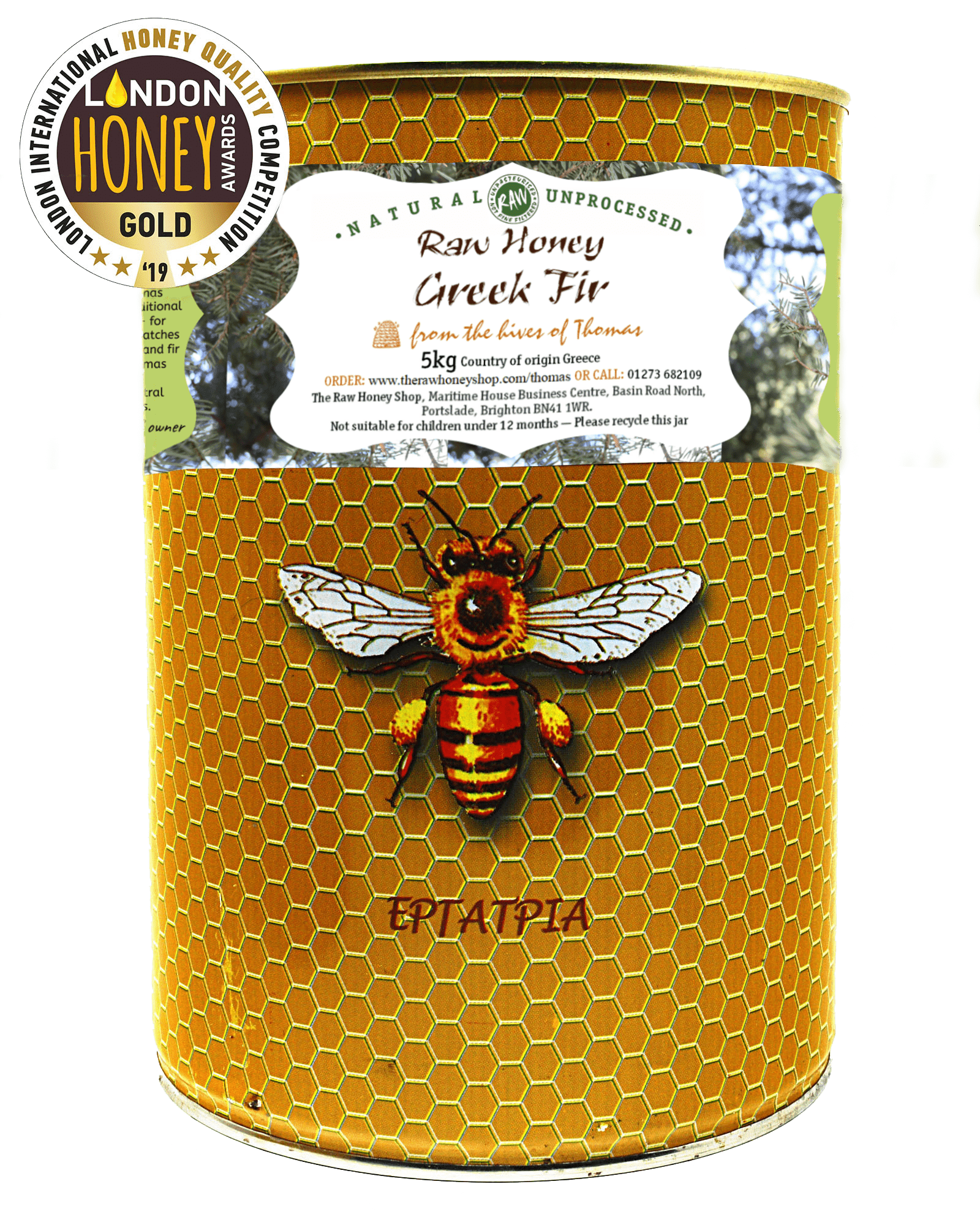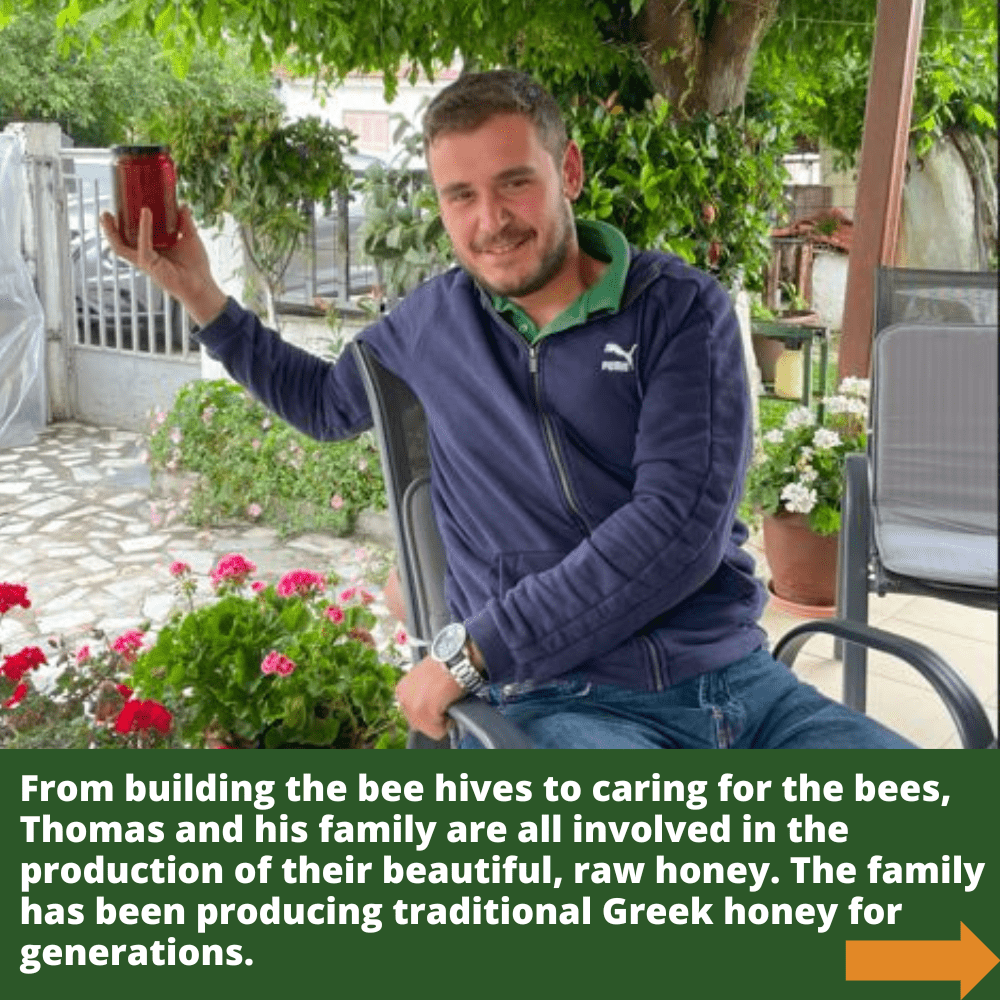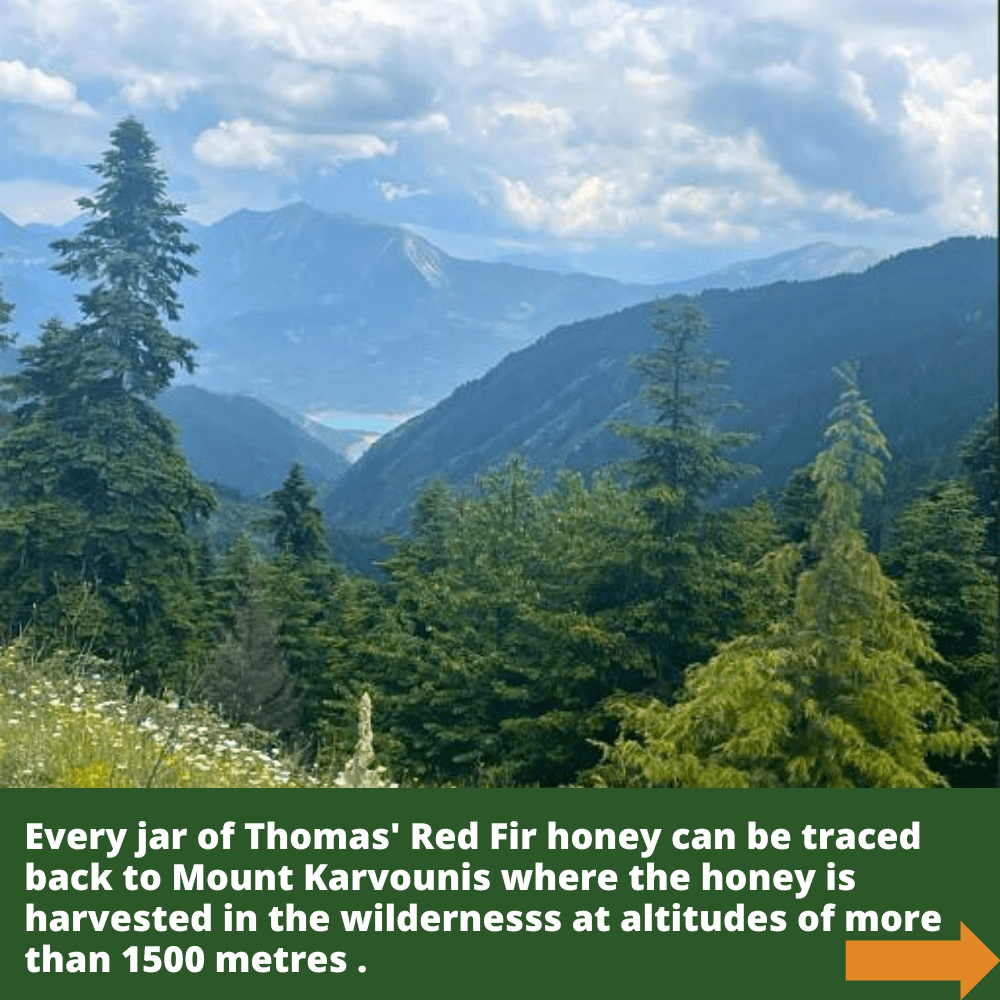Artisan Certified Organic Greek Red Fir Raw Honey - Active 19.5 - 5kg
- Regular price
- GBP 125.96
- Sale price
- GBP 125.96
- Regular price
-
GBP
Our Returns and Refund Policy
This policy applies to our retail orders only. If you are a trade customer, please contact us directly.
HOW DO I MAKE A RETURN?
If your order arrives and there is a problem then please email us at info@therawhoneyshop.com or call us on 01273 682109. Include your order number if possible and details of the problem. If it is necessary to return the order, the product must be returned to us unopened and in the same condition as when it arrived. So please re-pack it with care using the original packaging or a suitable alternative and we can supply you with a freepost label. If we need to issue a refund, once we have the package back with us, we will issue you a full refund or replacement.
IMPORTANT: If your order has arrived damaged, then please dispose of any broken jars and glass safely and quickly. Please do not attempt to wash or clean the jars as there may be small chips that can cause cuts.
Contact us at info@therawhoneyshop.com and let us know the details, including your order number and if possible, attach pictures. These are helpful for us in terms of improving our processes and for any claims we may make against the carrier.
We will resolve this issue by either sending you a new product straight away or refunding your order in full.
If your order is a large tin or tub weighing over 1kg and arrives damaged:-
Unfortunately, we cannot accept returns on tins or tubs of over 1kg. If your tub or tin arrives slightly damaged and leaking, we are happy to give you a partial refund on the amount of honey you feel has been lost. Unfortunately, we cannot replace whole tins or tubs unless more than 50% of the honey has been lost. We would then request you send us pictures so that we can assess the damage and agree the replacement.
Sale items are sold as per the description and we cannot accept any returns.
We hope that you will never be unhappy with any honey that you buy from us, but if on the rare occasion that this does happen, please do get in touch with us as soon as you can, and we will be happy to find a solution for you.
Our Returns Policy
If there is a problem with your honey - provided no seals have been broken and the product has not been opened (i.e.: it must be in 'new' condition) you can return your honey to us up to 35 days after you have made your order. Excluding sale items which are sold as per the description and cannot be returned.
We will process your refund within 14 days of having received the returned good(s) or proof of having returned the goods (for example, a proof of postage receipt from the post office), You will be refunded for the full cost of the product(s) as well as any original shipping fees paid.
If you are returning part of a larger order, you may only be refunded a portion of any shipping fees paid.
Please note we cannot issue refunds or replacements for honey because it has crystallised.
We indicate on the website the state of each honey - either runny or crystallised but this information is based on the best of our knowledge and the state can change quickly – particularly in the colder months of the year. The crystallisation process is completely natural (even processed honey will crystallise eventually). If we have indicated that the state is runny and it is crystallised when you receive it - this simply means that it has crystallised quicker than we expected, which can happen. It does not indicate that there is a problem with the honey and therefore is not covered by our returns policy.
Please note that refunds on items bought as gifts can only be issued to the original purchaser.
The Raw Honey Shop reserves the right to apply and interpret this extended returns policy as it decides is most appropriate.
Consumer Contracts Regulations
If you have purchased our products online or over the phone, you will be covered by the statutory Consumer Contracts Regulations.
Consumer Contracts Regulations do not apply to perishable items (eg: fresh royal jelly and fresh bee pollen) or goods with a seal for health protection and hygiene reasons that's been broken.
If the item(s) you receive is somehow faulty or otherwise not as described, your right to return your item(s) is covered under the Consumer Rights Act 2015.
If you have any questions or need assistance with this, please contact us at info@therawhoneyshop.com or call on +44 (0) 1273 682109.
Active Raw Greek Red Fir Honey – Mountain-Fresh and Rich
Back Story
Discovering this Red Fir was an adventure.
The place where this honey comes from is one of the most stunning I have ever visited - and is a new place for Thomas' Fir. It was on my Summer honey expedition in June (2023) that I visited this divine mountain place.
One evening Thomas told me 'Tomorrow we are going to Mount Kaliakouda. You are going to love it there.'
So, this is the story......It was early one morning when Thomas and his Uncle Stefanos called for me from my hotel. We headed from the plains of Thessaly towards some mountains.
Stefanos was driving in his pickup truck, which was full of the aromas of honey and beeswax. Soon we were crossing gorges on the edge of the plain and then the ascent started. Through little mountain villages, we passed with old guys sitting drinking coffee and watching the world pass by.
Higher and higher we went, twisting and turning through hairpin bends that sent me sliding from one side of the seat to the other. There were less and less signs of human habitation until there was just forest carpeting the mountain.
After about an hour we were so high that we passed through the clouds.
We stopped for a moment to take in an incredible view across the mountains with Fir trees stretching below us and in the distance a lake in a valley.
Then a few minutes later we arrived at the place for the Red Fir honey.
This was a real high mountain wilderness.
On the road margins were a mass of wildflowers. Growing naturally, without any contamination from pesticides or herbicides.
I could hear the bees busily working the Fir trees around us, flying backward and forward to the hives.
This was my idea of paradise. The air was so pure, you felt a kind of mental clarity and wellness you only experience in really remote mountain places.
Whilst I took photos Thomas and Stefanos checked the hives and erected a fence to keep the bears out, who of course like nothing better than a meal of bee grubs and Red Fir Honey.
Then, finally after packing up their beekeeping equipment in the back of the pickup Stefanos passed me a chunk of honeycomb. It was truly superb. The most delicious honeycomb I had ever tasted. I knew at that moment that I had been presented with a real gem of a honey that Raw Honey People are going to love. Not only was it truly delicious but Fir honey tends to stay runny longer than most other honeys.
Summary
A rare gem from the remote forests of Mount Kaliakouda, this Red Fir honey is a stunning example of raw Greek tree honey. Harvested at 1500 metres by young beekeeper Thomas and his family, this deep red honey is smooth, rich and fruity, with a naturally strong antimicrobial power. It's a honeydew honey, rich in prebiotic oligosaccharides and unusually slow to crystallise.
Product Highlights
- 100% Raw & Unpasteurised
- Certified Organic
- Cold-Pressed
- Coarse-Filtered
- Rare Red Fir Honeydew Variety
- Harvested at high altitude: 1500m on Mount Kaliakouda
- Produced by Greek beekeeper Thomas and his family
- Dark, smooth, slow to crystallise
- Naturally prebiotic
Aroma
Clean and foresty with mild resin tones. Subtle hints of tree sap and earthy minerals, evoking the cool air of high-altitude Greek fir forests.
Flavour
Deeply rich with a mild fruity tang and smooth consistency. The flavour finishes long and mellow—warming, clean, and satisfying.
Colour
Dark reddish brown when runny. Exceptionally smooth and thick. Will remain runny longer than most raw honeys.
Origin
Collected from bees foraging on fir trees at over 1500 metres in the wilderness of Mount Kaliakouda in central Greece. The hives are surrounded by untouched forest and wildflowers, far from pollution or agriculture.
Common Uses
- Enjoy by the spoonful for a healthful treat
- Drizzle over soft cheese or Greek yoghurt
- Pair with roasted nuts or figs
- Stir into warm herbal teas
- Use for its prebiotic and antimicrobial properties
👤 Producer Story
Thomas, a passionate beekeeper in central Greece, works with his father Giorgios and sister Elena. They combine traditional methods with modern practices to ensure bee health and quality honey. The family produces Greek honeys like mountain oak, red fir, vanilla fir, wild thyme, pine, and orange.
🧊 How to store your honey
To preserve its natural potency, store the honey in a cool, dark place. Light and heat degrade the enzymes that contribute to antibacterial activity. Keeping it away from light and high temps helps maintain its flavour, texture, and active properties.
🍯 Why Raw Honey is Different from Processed Honey
Raw honey comes from the hive to the jar with minimal interference. Most supermarket honey is processed to look attractive—drained of pollen, heated, and blended. Raw honey varies from batch to batch because it’s not factory-processed or heated. It changes with season, climate, and bee forage. We update this fact sheet based on the current batch.
🌀 Crystallisation
Raw honey crystallises naturally (so we cannot accept returns on crystallised honey). We indicate on the site whether the honey is runny or crystallised, but this may change. If you want runny honey and it has crystallised, it's easy to return it to runny. Check our Runny Honey Guide or read more on crystallisation.
🏪 About Us
At The Raw Honey Shop, we believe honey should be RAW, unpasteurised, and 100% natural. Since 2008, we've introduced customers to pure, all-natural honey. Our catalogue includes over 30 raw and organic varieties. Thank you for visiting. We look forward to sharing a world of raw, pure, and truly wonderful honey—the way the bees intended it!
Please note we cannot accept returns on this honey due to its size. The tin has travelled all the way from Greece so small dents to the tin will often appear. If your tub or tin arrives slightly damaged and leaking, we are happy to give you a partial refund on the amount of honey you feel has been lost. Unfortunately, we cannot replace whole tins or tubs unless more then 50% of the honey has been lost. We would then request you send us pictures so that we can assess the damage and agree the replacement.
📸 Representative Photo Disclaimer
Product photo is representative. The colour and texture of raw honey may vary by season and crystallisation level. Please check the product title and description for accurate contents.





















